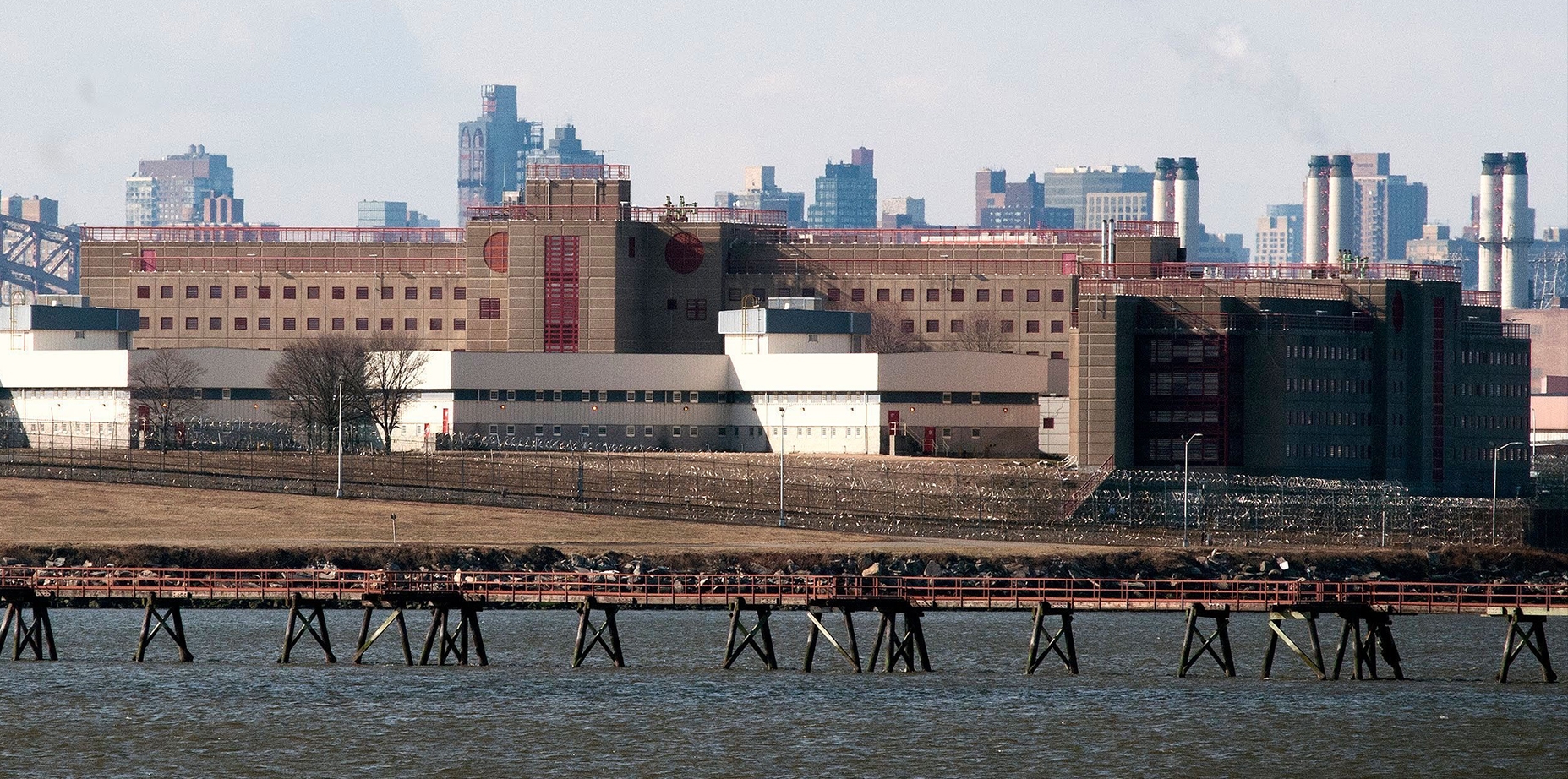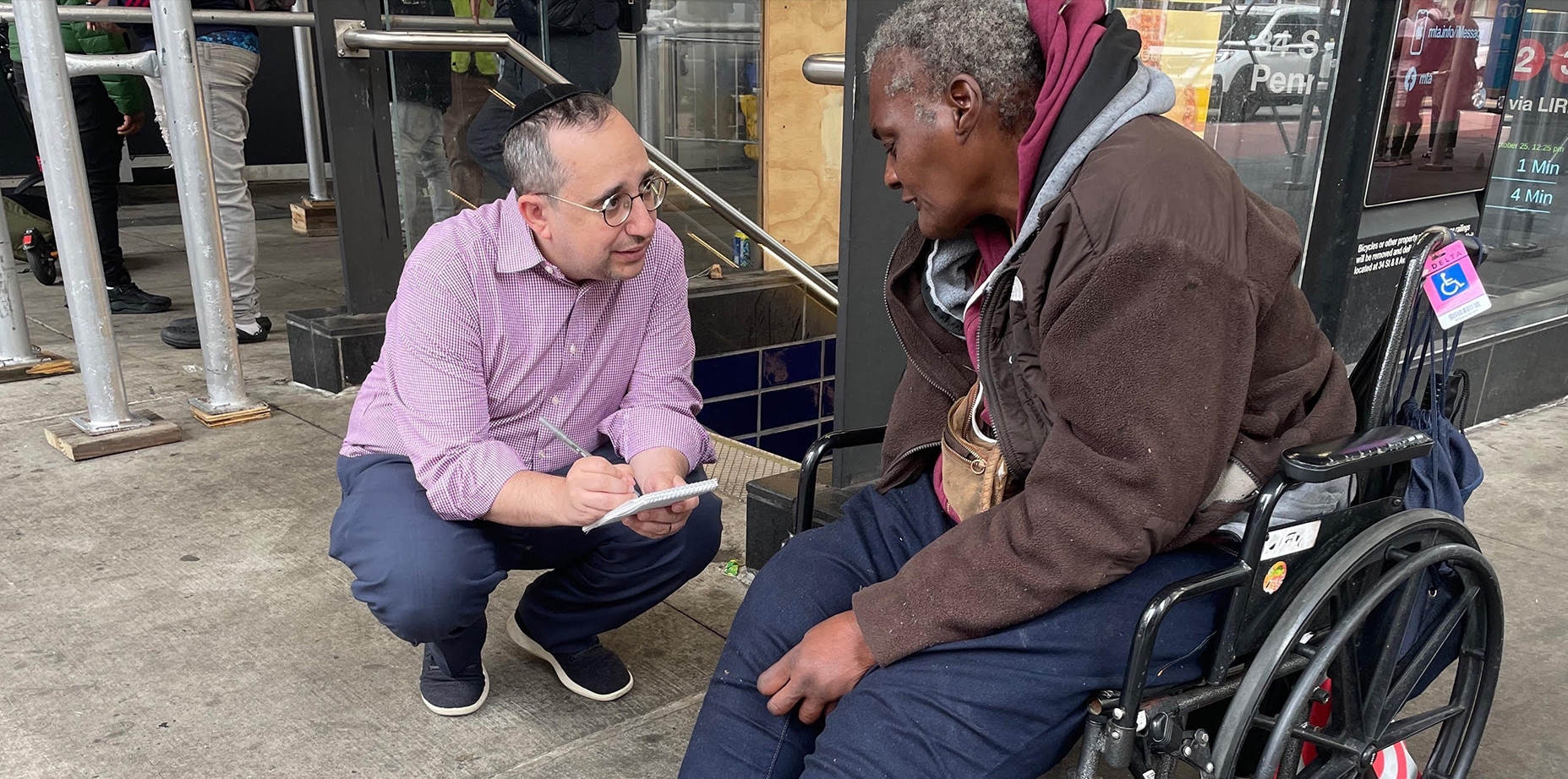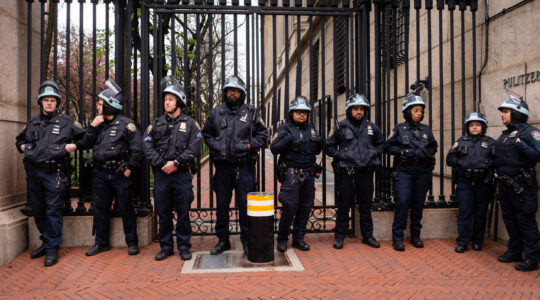(New York Jewish Week) — Reuven Blau, son of a Holocaust survivor, suggests his father may have inspired him to strive for change within New York City’s notorious Rikers Island jail.
“There’s this subconscious drive to change things, or to help people in a way that you don’t understand,” said Blau. “Inside Rikers, you realize how difficult it is, and how terrible the circumstances are for everyone involved.”
A reporter for The City who studied at a yeshiva in Brooklyn, Blau is the co-author, with Graham Rayman, of “Rikers: An Oral History,” a new book on a jail that makes frequent headlines for the violence and despair trapped within its walls. The book seeks to humanize the people inside the jail — both inmates and the people who work there — and tell their stories.
Its aim, Blau told the New York Jewish Week, is to amplify the voices of “people who are rarely seen as people,” he said.
The jail complex, which opened in 1932, has long been criticized for its harsh conditions, which include horror stories of inmates caged in tiny showers, sleeping on excrement-smeared floors, suicides, beatings and more. Many have called for its closure since the 1970s. As of Dec. 14, 19 people died at Rikers in 2022 — the highest death rate since 2013.

Rikers Island, the jail complex located in the East River that has been open since 1932, is the site of a constant stream of violent news and headlines over the past few decades. (The City/Ben Fractenberg)
The reporters spent close to three years interviewing about 130 people, with most of the conversations taking place over the phone or in person with people already out of jail. They also made several trips to the jail complex.
One of the people they spoke with was Rabbi Gabriel Kretzmer Seed, a Jewish chaplain on Rikers. Seed spoke about singing Shabbat songs with an inmate who suddenly got up and punched him.
“He was a pretty strong person, but I only ended up with a bloody lip. He might have been mumbling something, but I don’t remember what he said specifically. I was quite shocked. Everything happened so quickly,” Seed said. “I was totally in shock because I had known him for a while and he was the last person I thought would hurt me.”
Seed then remarked that he was able to work with mental health staff and ultimately managed to have a good relationship with the inmate after the incident.
“It was such a revealing story, how there are people who are there to help others,” Blau said. “And they become aware of how people are misplaced there.”
Prior to joining The City, Blau had worked at the New York Daily News and the New York Post. Despite his deep reporting experience, Blau, 43, noted that it’s been “the weirdest thing” to become the “voice” of Rikers. “I’m this whole yeshiva guy,” Blau said. “I’d never been to jail. It wasn’t an issue I was familiar with at all in any way.”
Blau, who grew up in Denver and went to a yeshiva high school in Chicago, said that he remains observant. “Big cholent fan,” said Blau, who lives in New Jersey with his wife, Sara, who had a baby girl in May. “My favorite part of the culture is the social service network that exists in many communities.”
Support the New York Jewish Week
Our nonprofit newsroom depends on readers like you. Make a donation now to support independent Jewish journalism in New York.
He fell into reporting after majoring in English at Brooklyn College. Before working for the tabloids, Blau wrote for The Chief, a newspaper dedicated to labor and local politics, where he covered the union that represents New York’s corrections officers, among other things.
In 2011, he landed a scoop with the Post about a “jailhouse bar mitzvah” which revealed that correction officers and supervisors attended a lavish Jewish coming-of-age cermony behind bars at a downtown Manhattan jail whose costs were carried by taxpayers.
“I always had some foot in the jail coverage,” Blau said of his time working in the news industry.
His co-writer, Rayman, covers criminal justice for the Daily News. Rayman told the New York Jewish Week that he doesn’t think people can read the book and “come away with a feeling that anything other than that particular jail system is deeply flawed and in need of major changes.”
The city is required by law to close Rikers Island by 2027, yet many are casting doubt over whether that will be possible.
“I really hope that there’s not a journalist behind me in 20 or 30 years that is writing about the same issues, because I think that means the coverage we’ve been doing hasn’t made an effect,” Blau said. “I look at it through that lens. I try to come up with ways that are going to change things for the better in a real meaningful way.”





